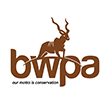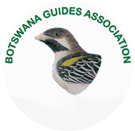Viewing of Wildlife
Parks and reserves have been established for the protection of the wildlife. Here, in the wilderness of Botswana, it is you who are the intruder, and your presence is a privilege.
Going Green
FROM 'Green...to...Eco'
Botswana Tourism Organisation (BTO) promotes best practice management systems across all tourism industry sectors to facilitate environmentally sustainable tourism development. Botswana Tourism also ensures a collaborative approach with relevant stakeholders public and private to raise the profile of the organisation.
Self-drive Camping
Embarking on a camping trip in Botswana requires a good deal of planning and preparation. You will be going to remote areas, accessible only by four-wheel drive, where water, petrol or food may not be available. You may often be driving on rough terrain, and through heavy sand, in conditions very different from those you are used to.
Shopping and Office Hours
All major towns in Botswana, including Maun and Kasane, have shopping centres and supermarkets, and all basic commodities can easily be purchased. Many regional chain stores operate in Botswana. In addition, there are 24-hour convenience shops at most fuel service stations.
There is an increasing range of local arts and crafts on sale in Gaborone, Maun and Kasane and other tourist areas; they include Botswana’s renowned world-class baskets, woodcarvings, jewellery, pottery, tapestries, fabrics and clothing, glassware, and San crafts.
Health
Botswana is one of the healthiest countries in sub-Saharan Africa, with good primary health care facilities available throughout the country. However, the following health precautions are advised.
Travel Insurance
It is essential for visitors to remote areas of Botswana to have a comprehensive medical insurance policy, to provide coverage for the treatment of serious illnesses/accidents, and if required, medical evacuation. Personal effects insurance is also advisable.
What to Bring/Wear
What to Bring
Binoculars, torch, insect repellent, lip salve, sunscreen, sunglasses. Cosmetics, medications, and cigarettes are all available in the major towns, but if specific brand names are needed, it is best to bring enough to last your stay.
However, care needs to be taken to comply with international aviation security regulations for items in carry-on luggage and customs regulations.
Contact your airline for details and refer to the customs regulations.
Money
Currency
The Botswana currency is the Pula (meaning ‘rain’ in Setswana).
It is divided into 100 thebe (meaning ‘shield’ in Setswana). Travellers’ cheques and foreign currency may be changed at banks, bureaux de change, and authorised hotels.
The US dollar, Euro, British Pound and the South African Rand are the most easily convertible currencies.
Automatic teller machines accept foreign visa cards but are mostly found in larger towns and cities. Foreign cash withdrawals may be subject to additional fees.
Time to Visit
Botswana is an all-year round destination. The two distinctive seasons give varied all round terrific experiences.
Entry Formalities
Visas
Citizens of most European and Commonwealth countries do not require a visa for entry into Botswana. However, visitors should check with Botswana embassies or consulates, or their travel agents, before departure.It is vital for visitors to carry a valid passport and sufficient funds to facilitate their stay.
Note: For countries with whom Botswana has no diplomatic representation, visa information and processing are available through British Embassies and High Commissions.










